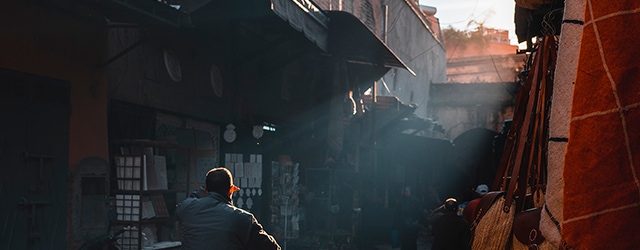The government unveiled an ambitious economic recovery package. But with a flagging tourism industry and declining FDI, worries persist.

In July, Moroccan Prime Minister Saad Eddine El Othmani unveiled an ambitious package of 11 national programs to be implemented in the coming three years. The measures are designed to generate 120,000 new jobs, directly or indirectly, over that period.
El Othmani’s initiative follows what many observers consider a pretty good initial response to the economic fallout from the Covid-19 pandemic, including finding a way to make payouts to workers in the informal sector. But it also comes as travel restrictions and health concerns cast doubt on the future of the country’s most dynamic industry: tourism.
The centerpiece of the package is 75 billion dirhams (US$8.2 billion) in official credit guarantees and 45 billion dirhams in investment. Two-thirds of the latter will be “mobilized through national and international institutions” and the rest from public funds, according to a PowerPoint presentation created by the Ministry of the Economy, Finance and Administrative Reform. Together, the guarantees and direct investments equal about 11% of GDP and will focus on sectors hit hardest by the pandemic-induced slowdown. Meanwhile, officials say they want to beef up and extend Morocco’s social security system.
Together, these measures represent “a comprehensive recovery plan,” says Amina Coulibaly, senior economist at the World Bank, including not just much-needed stimulus but “a development road map going forward” and should bolster public-sector confidence.
Tourism Woes
During the 21-year reign of King Mohammed VI, Morocco made significant investments in electrification, roads and railways, in addition to launching a landmark solar power project. Tourism has also emerged as an economic driver. The number of foreign travelers visiting the country jumped threefold, topping the 12 million mark for the first time last year and adding more than US$8 billion, or nearly 7% of GDP, to the economy.
“It was a growing trend,” says Roberto Cardarelli, mission chief for Morocco at the International Monetary Fund. “We were expecting that trend to continue. The business fostered an improvement in the current account. Now we are going to have to reassess that.”
Morocco continues to “suffer from high unemployment rates, poverty, social inequality, mediocre healthcare and education, a persistent urban-rural divide and towering public debt,” according to a recent policy briefing by the Brookings Doha Center. “The economy relies on oil imports and unstable agricultural and tourism sectors.”
In response, the government has tried to encourage investment in a wider range of industries over the past decade or so. These include aeronautics, automotive and fisheries, says Oussama Fraikech, managing director of Fraikech Associates, the Moroccan branch of Globalaw, an international network of law firms. “These have been quite successful,” he says.
The country also embarked on an outbound foreign direct investment (FDI) spree over the past five years, mostly focused on Francophone Africa. Morocco’s outbound FDI hit $1 billion last year, up from $800 million the year before, according to a report by the United Nations Conference on Trade and Development (UNCTAD). The main sectors for outbound FDI are banking, insurance, construction, real estate and renewable energy, notes Fraikech.
Even before the pandemic, incoming FDI was down by 55% last year, according to UNCTAD, and the Covid crisis exacerbating that trend. “Although all industries are set to be affected, several services industries—including aviation, hospitality, tourism and leisure—are hit hard, a trend likely to persist for some time in the future,” says James Zhan, Unctad’s director of investment and enterprise.
Nearly 90% of Moroccan hotels were forced to close temporarily due to the pandemic, according to the tourism ministry. In July, the government negotiated a support and revival program with industry leaders that is projected to extend through 2022. The “vast” endeavor “will pay part of people’s salaries and include specific programs for employees,” Fraikech says.
On the bright side, the crisis may give Morocco a chance to improve the quality of its offerings to visitors. “The tourism sector would need to adjust to the ‘new normal’ after Covid-19, and here lies also a significant opportunity,” says Coulibaly. “Safe, green, inclusive and sustainable tourism can become a trademark of Morocco and allow for new growth and income opportunities in the future.”



